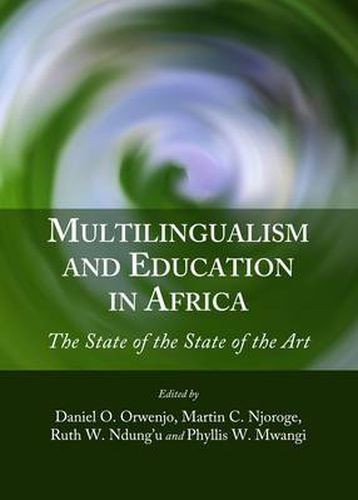Readings Newsletter
Become a Readings Member to make your shopping experience even easier.
Sign in or sign up for free!
You’re not far away from qualifying for FREE standard shipping within Australia
You’ve qualified for FREE standard shipping within Australia
The cart is loading…






This book is a must-read for every language teaching professional and researcher working in a multilingual context. Multilingualism and Education in Africa: The State of the State of the Art is an up-to-date exploration and wide-ranging review of the symbiotic relationship between multilingualism and education in Africa. The African continent is rich in languages. Most of her inhabitants are multilingual and many of the nations have embraced multilingual education. This book examines multilingualism in education from three broad perspectives: multilingualism and language in education policy in Africa; multilingualism as an educational resource in Africa; and attitudes and challenges of multilingualism and education in Africa. The book’s nineteen chapters discuss these three perspectives from East, West, Central and South Africa. All the contributors are leading authorities in multilingualism and education. The chapters combine a wide range of viewpoints based on theoretical, empirical and personal experiences. The reader is left with a deeper understanding of the unique features of multilingualism and education in Africa that have seldom been addressed by those who experience them first-hand. The book demonstrates successful practices in multilingualism and education; showing how African nations have determined what works for them without ignoring challenges such as policies on paper, attitudes towards African languages and limited resources. The benefits of multilingual education override the challenges. The book’s extensive coverage makes it an important resource for scholars and policy makers in the field of multilingualism and education. Overall, this book represents an important contribution to an important subject in education globally. The editors have provided an introductory overview to the book and commentaries on the three sections.
$9.00 standard shipping within Australia
FREE standard shipping within Australia for orders over $100.00
Express & International shipping calculated at checkout
This book is a must-read for every language teaching professional and researcher working in a multilingual context. Multilingualism and Education in Africa: The State of the State of the Art is an up-to-date exploration and wide-ranging review of the symbiotic relationship between multilingualism and education in Africa. The African continent is rich in languages. Most of her inhabitants are multilingual and many of the nations have embraced multilingual education. This book examines multilingualism in education from three broad perspectives: multilingualism and language in education policy in Africa; multilingualism as an educational resource in Africa; and attitudes and challenges of multilingualism and education in Africa. The book’s nineteen chapters discuss these three perspectives from East, West, Central and South Africa. All the contributors are leading authorities in multilingualism and education. The chapters combine a wide range of viewpoints based on theoretical, empirical and personal experiences. The reader is left with a deeper understanding of the unique features of multilingualism and education in Africa that have seldom been addressed by those who experience them first-hand. The book demonstrates successful practices in multilingualism and education; showing how African nations have determined what works for them without ignoring challenges such as policies on paper, attitudes towards African languages and limited resources. The benefits of multilingual education override the challenges. The book’s extensive coverage makes it an important resource for scholars and policy makers in the field of multilingualism and education. Overall, this book represents an important contribution to an important subject in education globally. The editors have provided an introductory overview to the book and commentaries on the three sections.